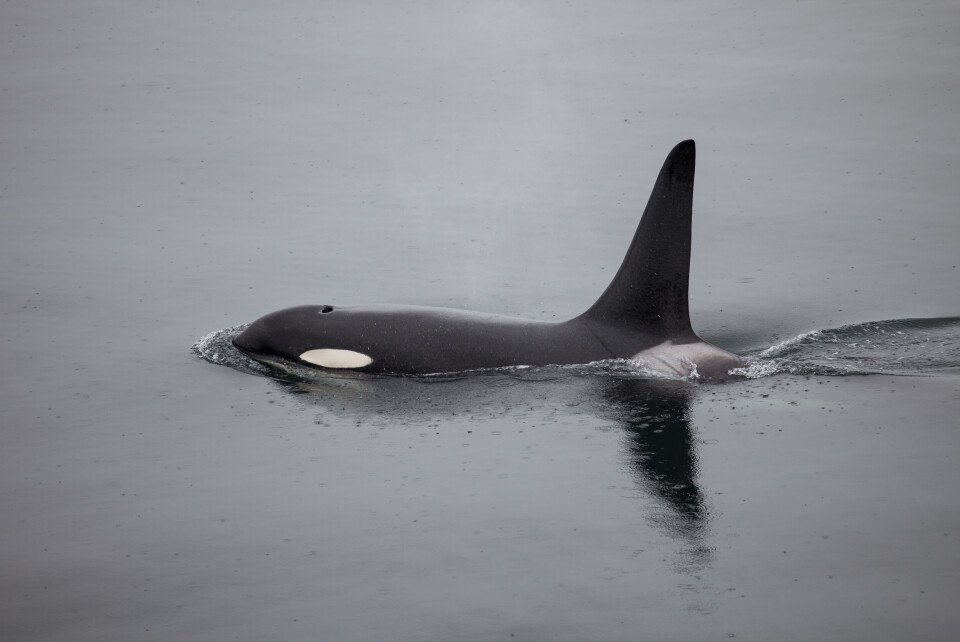-
Roadside noise cameras await approval to start issuing fines for loud vehicles in France
The devices known as meduses already exist in several cities but so far have only been ‘instructional’
-
White storks make strong return in France via nest ‘platforms’ and clipped wings
The Ligue pour la Protection des Oiseaux shares the conservation challenges in saving these birds from extinction
-
Hosting scheme in south-west France lets newcomers sample lifestyle
Households in nine Dordogne communes volunteer under Mes Nouveaux Voisins scheme
French NGO files complaint after bullet found in dead Seine orca
The whale died in May after rescue attempts failed. The bullet, lodged in its head, does not appear to be the cause of death

Animal experts are set to file a complaint after a bullet was discovered in the base of the head of the whale that died in the Seine at the end of May.
The Sea Shepherd France NGO said it would file “a complaint against X for the attempted destruction of a protected species”.
Résultats de la nécropsie : Sedna, l'orque errante dans la Seine est morte de faim. On lui avait par ailleurs tiré une balle dans la tête plusieurs semaines/mois auparavant. Nous déposons une plainte contre X pour tentative de destruction d'espèce protégée. https://t.co/JrwilStdbB
— Sea Shepherd France (@SeaShepherdFran) July 6, 2022
The bullet was discovered during the analysis of the whale’s body and skeleton as part of a project to clean and inventory it for the marine mammal collection at the natural history museum in Paris.
Read more: Skeleton of orca that died in the Seine to enter Paris museum
Read more: Update: sick orca whale trapped in the Seine found dead
Scientists have said that the whale’s death was unlikely to be connected to the bullet and that the projectile appeared to have entered the head at slow speed, perhaps due to water. This is why the bullet did not puncture the skull, they said.
Analysis and investigations are continuing, but at this stage “it is not possible to date the exact moment when the bullet entered the animal’s body”.
Despite the bullet, the whale – who was more than four metres long and weighed 1,100kg at the time of death – is thought to have died due to illness and lack of food. Analysis of its stomach has suggested that it had not eaten for days or weeks, perhaps due to being ill.
The first results of the post-mortem examinations by the Observatoire Pelagis of La Rochelle and the University of Liège “suggest the hypothesis that the animal died of weakness caused by the fact it had stopped eating”.
This weakness could also explain why the whale was alone and became lost in the river, the scientists said, as whales are usually found in groups.
The Seine-Maritime prefecture said: “The exact cause of its death is not yet known, but evidence collected indicates that its death was not directly related to its movement into the Seine [river].”
Thierry Jauniaux, a vet and one of the experts taking part in the analysis, told Le Monde: “During the first analyses on May 31, the head was carefully examined and dissected by several experts, and we saw nothing.
“[But] where the bullet lodged, there is a thin layer of tissue and we very quickly arrived at the animal's skull. If the bullet had arrived at full power, it would have hit the skull. However, there were no injuries to the skull, nor was there any haematoma or trauma.”
He added: “I often do autopsies on seals, and I regularly come across hunting pellets. But more often than not, it is not these bullets that cause their death: they die because they get caught in nets.”
The group is continuing research into the whale, and trying to find the group it may have come from.
‘Far from isolated practice’
Yet, Sea Shepherd said the bullet was an indictment of broader fishing practices at sea.
Lamya Essemlali, president of the NGO, told Le Monde: “The presence of this bullet is indicative of practices at sea that are far from isolated. On a regular basis, cetaceans are shot at by fishermen because they approach the fish in their nets. This happens very often in the Arctic or in the Strait of Gibraltar.”
Ms Essemlali said that she does not expect the shooter to be identified, but that the fishing companies responsible could be.
Investigations are also ongoing in the whale’s ears, to understand whether it was a victim of noise pollution that caused it to become disorientated.
Ms Essemlali said that the amount of maritime traffic in the Channel, and the installation of wind turbines at sea means that "there is an explosion of sources of noise pollution, which is very disturbing for cetaceans and disorients them.
“We need to monitor this closely because another whale in our rivers is bound to happen again.”
Just a few weeks after the first whale was seen in the river, another - thought to be a minke whale - was spotted. However, it has not been seen again despite observation from several boats and drones, meaning that it has likely returned to the sea.
Related articles
Another (suspected) whale spotted in Seine river in northern France
Sea life organisations question handling of orca that died in Seine
Video: Orca whale seen in Seine river but authorities cannot intervene
























